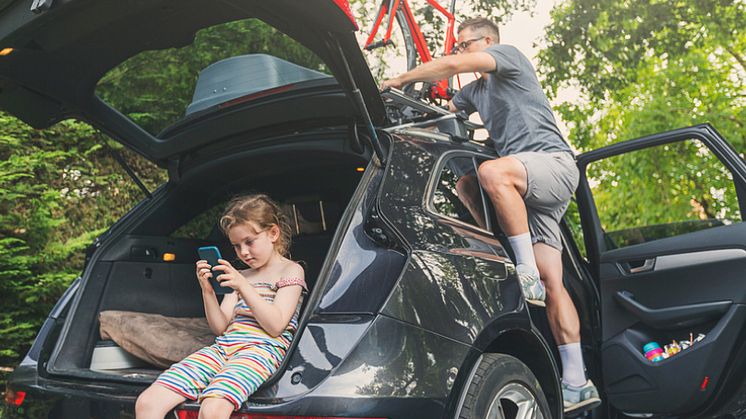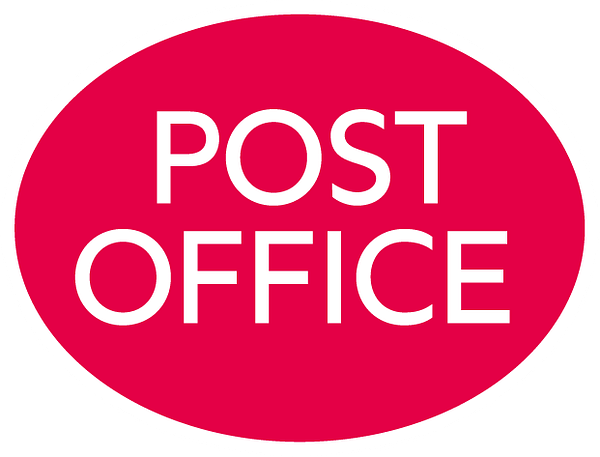
Press release -
Revealed: Where to get the cheapest fuel in Europe’s holiday destinations – and how to avoid costly fines
- One third of Britons holidaying in Europe say they will drive their own car or hire one
- France, Spain and Italy are the top choices for holiday motoring but Andorra is cheapest for fuel
- Despite the strong pound, pump prices have risen since 2019 in almost 90 per cent of countries
- Fuel has fallen in price in Portugal and the Netherlands
- Over two-in-five of holiday motorists are unaware of new rules of the road in top destinations
- Almost one-in-five admitted past spot fines for speeding or other motoring violations
A third of Britons visiting Europe this year plan to drive while on holiday – either in their own car or in a rental vehicle1, according to the Post Office Travel Money Motoring on the Continent report www.postoffice.co.uk/holidaymotoring. Published for the first time since the Covid pandemic, the new report reveals that the crude oil crisis means holiday motorists will face pump price rises in 15 of the 17 countries surveyed for the report2. It also found that over two-in-five of them are unaware of new European road rules and risk big fines3.
France, Spain and Italy are the top choices for holiday motoring, according to consumer research conducted for the report4. Of these three favourites, drivers will fare best in Spain where the average pump price of £1.40 per litre made it fourth cheapest in the survey for unleaded petrol and 4p lower than in the UK (£1.44). The £1.25 cost of diesel is 21p less a litre than in the UK, making it second cheapest in the survey.
Over one-in-five (21 per cent) will drive in France but high prices at the pumps make it one of the most expensive countries for fuel, at £1.62 for unleaded petrol and £1.47 for diesel. The same is true of Italy, where unleaded petrol costs £1.62 a litre and £1.49 for diesel. However, Andorra, a useful detour enroute to Spain, is cheapest of all for unleaded petrol (£1.23) and diesel fuel (£1.10).
Although fuel costs across Europe have fallen from the record levels they reached over the past year and sterling is at a 2023 high against the euro, pump prices are higher in almost 90 per cent of the countries surveyed than in 2019, when the pricing comparison was last conducted. The biggest percentage rise of over 31 per cent is in Switzerland, priciest for diesel fuel at £1.76 a litre and expensive for unleaded petrol at £1.66 (15thof 17 countries). Prices have also risen significantly in Luxembourg at £1.41p (+29.4 per cent) for unleaded petrol and £1.26 (+29.9 per cent) for diesel – although it remains one of the cheapest places to fill up.
In better news for the holiday motorist, fuel prices have fallen in Portugal. 1,000 miles of motoring will cost £224.11 using unleaded petrol and £196.14 for diesel. At £1.48 a litre for unleaded petrol, this represents a fall of 1p (0.7 per cent) since 2019, while diesel also costs 1p (0.8 per cent) less at £1.29. The cost of unleaded petrol has also fallen 1p a litre to £1.59 in the Netherlands.
Closer to home, Ireland emerges from the pump price comparison as one of the cheapest place to fill up with either unleaded petrol – £1.38 per litre/£209.79 for 1,000 motoring miles, second only to Andorra – or diesel fuel – £1.28/£194.47 for 1,000 miles, fourth cheapest in the survey. Prices have risen by just over four per cent and are lower for both fuels than in the UK.
Ireland is one of 14 countries where motorists driving a diesel car will pay considerably less than for unleaded petrol, a trend picked up in previous reports. The only exceptions are Sweden, where diesel fuel costs 14p more a litre, Switzerland where it is 10p more expensive and the UK where motorists will pay an average of 2p a litre extra. By contrast, Britons will pay 32p less a litre to drive a diesel car than an unleaded petrol one in Denmark, 27p less to do so in Greece and 25p less in the Netherlands.
As Britons gear up to drive abroad, a wave of low emission zones are coming into force across Europe this summer, which, if flouted, could result in costly fines. Post Office research found that 43 per cent of Britons planning trips are unaware of low emission zone restrictions in top destinations like France and Spain where they are most likely to drive. Over half (52 per cent) were unaware of daily entry fees and permits required in many cities and 58 per cent did not know about the requirement to display windscreen stickers showing the emissions levels of their vehicle. In France ‘Crit Air’ emission stickers must be displayed and if not could result in fines of €68-€135.
42 per cent of those planning to drive in Europe did not realise that speeding can carry spot fines. Yet almost one-in-five (19 per cent) admitted having incurred spot fines for speeding or violating other travel regulations on past trips to Europe. Similar numbers (18 per cent) said they had been given ULEZ-style fines for contravening low emission zone regulations and 47 per cent were unaware that those with a paper driving licence issued before 31 March 2000 will need an international driving permit.
Laura Plunkett, Head of Travel Money at Post Office, which accounts for one-in-four UK foreign exchange transactions, said: “With flight costs reported to be soaring, it is understandable that so many Britons have decided to drive to Europe this summer. However, it is worrying that many people have not realised that driving laws have changed since their last trip and they could be risking big fines if they don’t learn the rules of the road. Popular destinations like France and Spain have long been operating spot fines so it is crucial for holiday motorists to carry foreign currency with them in case they are stopped for speeding or falling foul of new rules.
“Our pump price research found that the cost of filling up in Europe can vary by as much as £100 so we advise planning driving routes carefully before setting out to keep costs down. Save money by diverting from the motorway and trunk roads into local towns. Supermarket prices will be cheaper than on the roadside, just as they are here in the UK. Remember to carry some foreign currency as not all petrol stations in rural locations accept plastic.”
Gearing up for your trip abroad – holiday motoring hot tips
- Get to know the new motoring rules that apply in the countries where you plan to drive.
- Carry foreign cash to deal with speeding or parking fines or to pay for fuel.
- Check the level of breakdown assistance cover you have for driving in Europe.
- Check fuel costs in the countries where you plan to drive and plan detours to save cash.
- Avoid filling up on the motorway – divert to a local town and get supermarket fuel.
- Make sure your driving licence is legal in Europe and get an international permit if not.
Ends
Notes to editors:
The Post Office is the UK’s leading foreign currency provider, offering over 60 currencies for pre-order at 7,000 Post Office branches or online at www.postoffice.co.uk/travel for next day branch or home delivery. 3,600 larger Post Office branches stock the leading currencies and more than 7,000 offer euros over the counter without pre-order. These can also be ordered online for same day ‘click and collect’ at selected branches, next day collection at any branch or home delivery.
1 Post Office ‘Hot Topics’ research, conducted 18th-26th May 2023 among a nationally representative sample of 2,005 consumers. 44 per cent (874) of these consumers said that they are planning a holiday to Europe this year. Of those, 33 per cent will either drive to Europe (14 per cent) or hire a vehicle to drive when they get there (19 cent).
2 2023 vs 2019 prices. Fuel prices for the Post Office Travel Money Motoring on the Continent report were taken from a range of sources including Tolls.eu, Cargopedia and the RAC. Post Office Travel Money surveyed unleaded petrol and diesel prices per litre and calculated the cost of motoring for 1,000 miles (based on 30 miles per gallon/4.55 litres), comparing 2023 prices with 2022. Data for both tables relates to exchange rates on 21 June 2023 and the cost per litre is to the nearest pence. A full breakdown of costs is shown in the accompanying tables.
3 Post Office research found that at least 43 per cent of Britons planning to drive in Europe (289 of those surveyed) were unaware of new European regulations either in place or coming into play soon.
4 When asked which countries they would be driving in or through in Europe during their holidays, the top 10 named were: France (21%), Spain (13%), Italy (11%), UK (10%), Greece 99%), Germany (6%), Netherlands (5%), Portugal (4%), Belgium (3%) and Ireland (2%).
Categories
About the Post Office
- With over 11,500 branches, Post Office has the biggest retail network in the UK, with more branches than all the banks and building societies combined.
- Post Office is helping anyone who wants cash to get it whichever way is most convenient. Partnership with over 30 banks, building societies and credit unions means that 99% of UK bank customers can access their accounts at their Post Office.
- Cash withdrawals, deposits and balance enquiries can be made securely and conveniently over the counter at any Post Office; and the biggest investment by any organisation or company in the last decade is being made to safeguard 1,400 free-to-use ATMs across the UK.
- Post Office is simplifying its proposition for Postmasters with a focus on its cash and banking; mails and parcels; foreign exchange; and; bill payments services.
- Research has found that visits to the Post Office help drive another 400 million visitors to other shops, restaurants and local businesses equating to an estimated £1.1 billion in additional revenue for High Street businesses.
- 99.7% of the population live within three miles of a Post Office; and 4,000 branches are open seven days a week.




